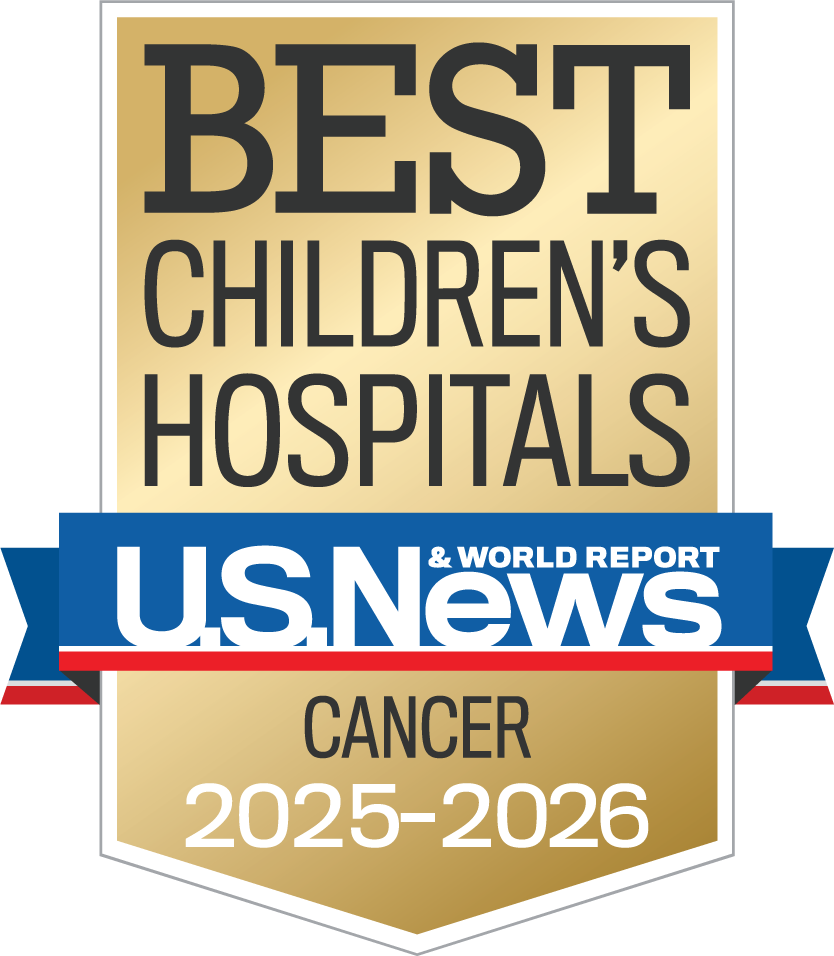Announced this week, the Cancer Institute is among 10 founding members of the Cancer MoonShot 2020 Pediatrics Consortium, the pediatric arm of a collaborative initiative launched earlier this year involving academic institutions, insurers and pharmaceutical companies working to create a new paradigm in cancer treatment. Cancer MoonShot 2020 aims to initiate randomized Phase II trials in 20,000 patients with 20 tumor types of all stages within three years. Those findings would inform Phase III trials and the development of vaccine-based immunotherapy by the year 2020.
Moonshot 2020’s Quantitative Integrative Lifelong Trial (QUILT) program will allow Pediatrics Consortium participants to apply the most comprehensive cancer molecular diagnostic testing available, as well as leverage proven and promising combination immunotherapies and clinical trials. Additionally, infrastructure established by MoonShot 2020 will allow for real-time data sharing to accelerate clinical learning and insight among participants.
“The Pediatric Cancer MoonShot 2020 is so visionary and, at the same time, has the capacity to disrupt the cancer health care industrial complex,” says Dr. Leonard Sender, medical director of the Cancer Institute. “The Cancer MoonShot will attempt to cure all the numerous types of pediatric cancers with the least toxicity by harnessing the patients’ own immune systems and using the tumors’ unique genomic mutations to create individualized cancer vaccines.”
The work to be accelerated by Cancer MoonShot dovetails with existing efforts around genomic sequencing, precision medicine, bioinformatics and research at CHOC’s Cancer Institute. CHOC has been named a Caris Center of Excellence for its commitment to precision medicine, and participates in the California Kids Cancer Comparison, which brings big data bioinformatics to patients. CHOC has also recently enrolled its first patient in a multi-center clinical study for the treatment of relapsed or refractory acute lymphoblastic leukemia (ALL) with investigational immunotherapy.
“Our Center has studied the value of whole genome sequencing for several years and has recognized the enormous value in such a test to assist in clinical decision making,” Dr. Sender says. “Now with the availability of the next evolution of molecular diagnostics from the genome to the proteome, we are excited by the acceleration of knowledge that this system will provide and are honored to be a founding member of such an important initiative.”
The formation of the Cancer Moonshot 2020 Pediatrics Consortium was shaped by three underlying drivers:
- Treatment of cancer – a heterogeneous disease shaped by multiple variables – requires a more personalized and precise approach. The Pediatrics Consortium will lead and use next-generation precision clinical genomic-proteomics enabling doctors and patients to get the most comprehensive molecular diagnosis in the market.
- The collaboration across industry and the medical and scientific community, as well as whole genomic and proteomic sequencing and clinical trials established under Cancer MoonShot, will help reduce barriers in the battle against pediatric cancer.
- The benefits afforded by a real-time data sharing infrastructure established by Cancer MoonShot 2020, combined with multiple participation from pharmaceutical companies, have not previously been available to individual pediatric cancer centers.
In addition to CHOC, the other founding members of the Consortium are Ann & Robert H. Lurie Children’s Hospital of Chicago; Children’s Healthcare of Atlanta, Aflac Cancer & Blood Disorders Center; Children’s Hospital of Philadelphia; Children’s Hospital of Pittsburgh of UPMC; Duke Department of Pediatrics – Duke University School of Medicine; Floating Hospital for Children at Tufts Medical Center; Huntsman Cancer Institute at the University of Utah and Intermountain Primary Children’s Hospital; Phoenix Children’s Hospital; and Sanford Health.

CHOC Hospital was named one of the nation’s best children’s hospitals by U.S. News & World Report in its 2025-26 Best Children’s Hospitals rankings and ranked in the cancer specialty.




